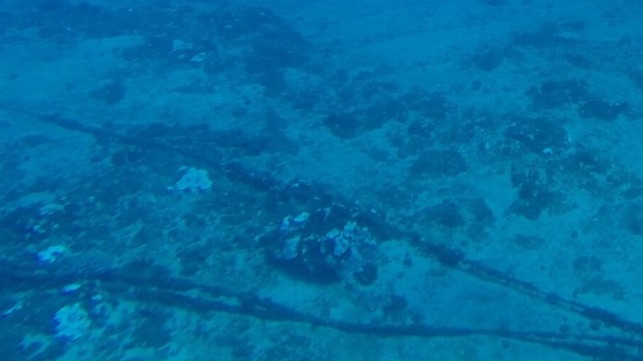Four More Subsea Cables Disrupted Off Africa

On Thursday morning, damage to at least four subsea cables along the west coast of Africa slowed down internet access for a dozen countries, according to service providers and internet traffic analysts.
"We have determined that multiple fiber cables on the West Coast of Africa — WACS, MainOne, SAT3, ACE — have been impacted," said Microsoft's Azure cloud service in a statement.
The damage adds to slowdowns caused by the severing of three cables in the Red Sea late last month. That earlier event has been widely attributed to an anchor dragged by the stricken bulker Rubymar, which drifted for weeks after taking a mortal hit from a Houthi antiship missile.
Taken together, the East Africa and West Africa cable incidents are affecting network traffic all over the continent, Microsoft said.
The internet customers who were affected most by Thursday's outage were residents of Liberia, who were essentially cut off, according to Cloudflare's data. Cote d'Ivoire also experienced substantial slowdowns, and Gambia, Guinea, Ghana, Benin, Niger and South Africa saw lesser effects.
Internet service providers reroute traffic to alternative networks when a subsea cable goes down, but with seven of Africa's international data links now severed, the list of alternative options has been reduced.

that matters most
Get the latest maritime news delivered to your inbox daily.
The extent, the cause and the location of Thursday's cable breaks are still under investigation. Cloudflare reports that it has identified a pattern in the timing of the disruptions, radiating from north to south. Another network analysis consultancy, Netblocks, concluded that the disruption was “likely at or near the subsea network cable landing points."
90 percent of all international data traffic passes beneath the sea, and securing this economically-vital infrastructure is an increasingly important priority for Western governments. Cables are high-value, remote, difficult to monitor, and largely unprotected, especially in deep waters.
